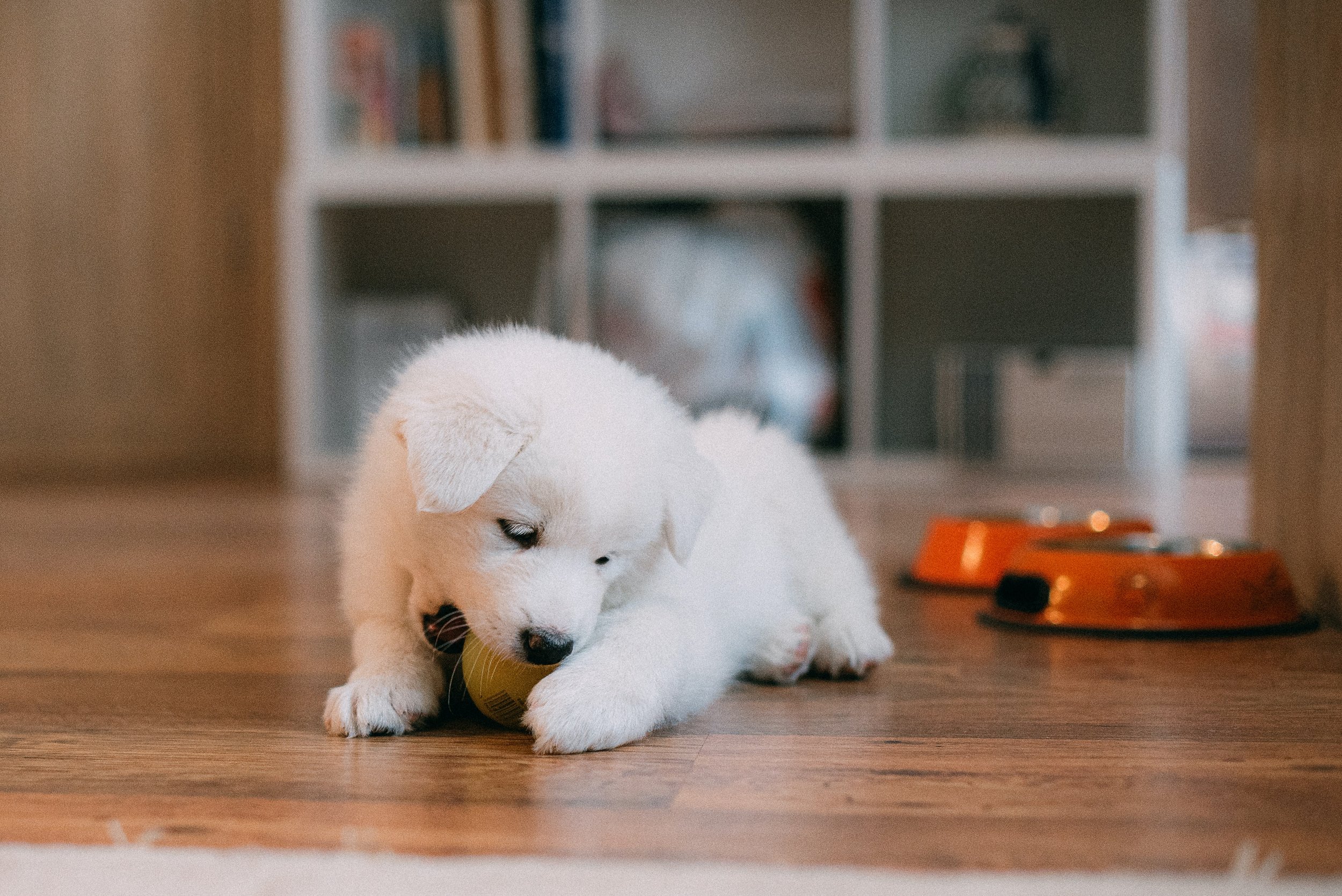Potty Training, Chewing and Biting: Correcting Your Puppy’s Behaviors
As a new dog parent, it’s safe to say you’re head over heels for your new best friend, but at the same time, a little frustrated by their puppy behavior. Chewing, biting, and jumping are common in puppies — they can be a handful! But remember, puppies are just babies. They’re curious, playful, full of energy, and eager to learn about the world around them. Just like when teaching a child, you’ll want to bring patience, understanding, and positive reinforcement when teaching your puppy new and correct behaviors. It might take some time and dedication but trust us — it'll be worth it. And who knows, maybe one day you'll look back and laugh at all the funny and mischievous things your pup did when they were just a little ball of energy!
Potty Training Your Pup
One of the most common puppy behavior complaints is potty training. If your puppy constantly has accidents in the house, it's time to act. Start by creating a designated potty area outside and regularly take your puppy to that area. Reward them with treats and praise when they go potty outside. If accidents happen inside, avoid punishing your puppy. Instead, clean up the mess thoroughly and redirect them to the designated potty area. If you’re wondering how long it takes to potty train your pup, it can take anywhere from four to six months. The dog’s size plays a part in training too. Smaller breeds have smaller bladders and require more frequent trips outside.
How to Stop Your Puppy from Chewing and Biting
Another common behavior complaint is chewing. Puppies love to chew, and they'll often chew on anything they can get their teeth on. Be sure to provide your puppy with plenty of toys and chews to satisfy this need. Be sure to redirect your puppy to their toys when they start chewing on something they shouldn't.
Puppies may also develop a habit of biting. Puppies bite because they use their mouth to explore the world around them. It's essential to teach them that biting is not acceptable. If you’re constantly telling your puppy not to bite, say "no" firmly and redirect them to a toy or chew.
Additionally, socializing your puppy with other dogs and people will help teach them correct behavior around others.
Crate Training
Crate training is another valuable tool for addressing bad puppy behavior. A crate can serve as a safe and secure place for your puppy to relax and rest. It can also help with potty training and chewing. When crate training your puppy, start slowly and reward them for going inside. Gradually increase the amount of time they spend in the crate until they're comfortable being inside for extended periods.
With patience, understanding, and positive reinforcement like chew toys and treats, you can help your puppy develop good behavior habits. Remember, consistency is key, and with time, your puppy will develop into a well-behaved and happy adult dog, and best addition to your family.

